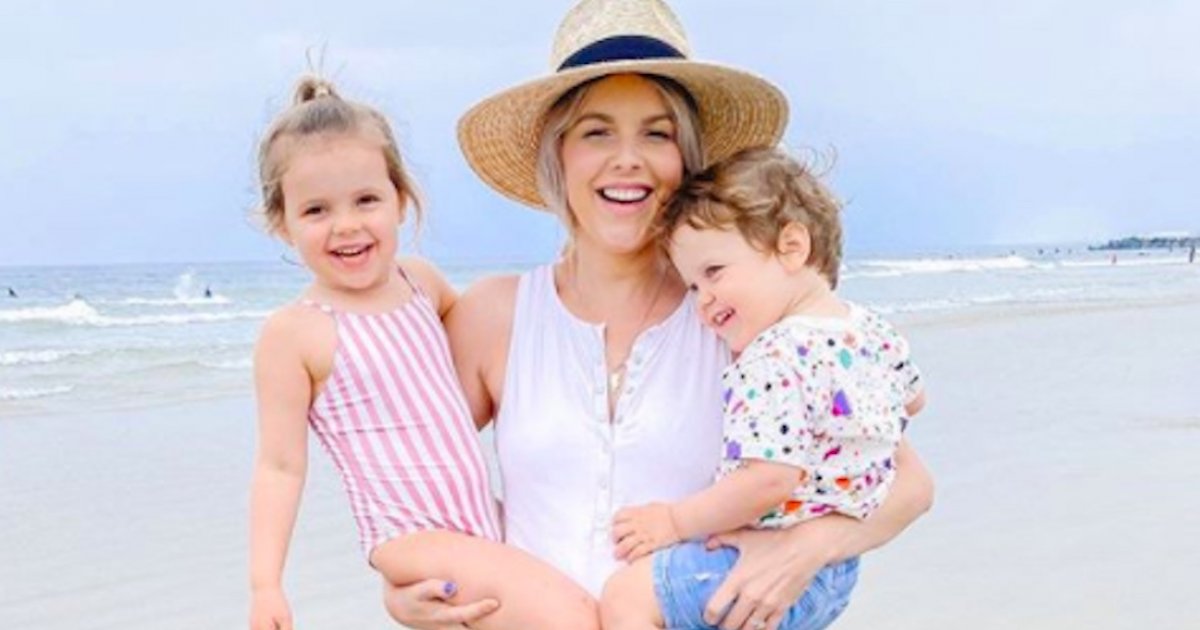After Basal Cell Carcinoma, Ali Fedotwoski-Manno Takes Precautions
- A 2019 biopsy found mole on her belly was cancerous
- To minimize risk of recurrence, she sees dermatologist every 3-6 months
- Wears sunscreen daily, year-round, even on cloudy, rainy days
- Reapplies often, keeping sunscreen in purse, emergency bag, by the door
Sunscreen, Even “If It’s Raining”
She’s faithful about applying sun protection — whether she’s heading outdoors or not. "I use sunscreen every single day. If it's raining outside, I'm putting on sunscreen. If it's cloudy outside, I'm putting on sunscreen.”Dr. Cecila Larocca on the ABCDEs of checking moles for signs of skin cancer.
“Not only do I put it on before my moisturizer and makeup, but it's also in my makeup," she explained in her People interview.
RELATED: Blink-182 Founder Tom DeLonge Reveals He Has Skin Cancer In Hilarious Way
"I also have right by the door. I have it right by my purse. I have it in my earthquake emergency bag in my car,” she said. “I have it everywhere. Even if I don't think I'm going outside, I still put it on."
"My Dermatologist Used The C-Word!"
In January, Fedotwoski-Manno shared news of her skin cancer diagnosis on Instagram (below): "Swipe to the third pic to see what my mole looked like before I got the biopsy done (so you know what to look for)."
"When my dermatologist used the c-word," she added. "I just about fainted in his office."
"It's a scary word to hear no matter how treatable it is when you go into your dermatologist office," she tells PEOPLE of her skin cancer diagnosis and the carcinoma's subsequent removal.
"I didn't get my skin checked for the first 33 years of my life, so I just think it's important to spread awareness and tell people to go get check your skin checked because this is very common," she shares. Basal cell carcinoma is the most common form of skin cancer.
An Irregularly-Shaped Mole
“The VERY first thing I did when I got diagnosed,” Fedotowski-Manno wrote, “was text my family on a group text urging them all to get their skin checked." Next, she alerted her 'extended family' on social media.
“Basal cell carcinoma is super common," she said. "The most common skin cancer. You probably know someone who has it. So it's no big deal. But what IS a big deal is not treating it and treating it early."
Dermatologist? "I Go Every 3/6 Months"
For patients who have completed basal cell carcinoma treatment, it's crucial to watch your skin closely, according to the American Cancer Society. Along with the risk of the cancer returning, people who have had skin cancer are also at high risk for developing other skin cancers, so close follow-up is important.
"Going to a dermatologist and getting your skin checked every year is SO important (I now go every 3/6 months)," Fedotowski-Manno says.
Like other celebrities and influencers who confront cancer scares, Fedotwoski-Manno often takes to social media to share the news with fans. In doing so, she sends available messages about the need for transparency when it comes to skin cancer, and about the importance of cancer screening and prevention.
"I'm lucky it wasn't melanoma," she continued. "And I'm lucky that I caught it early."
Skin Cancer Checklist:
Doing regular self-checks on your skin is important to find skin cancer early. If you're high-risk, it's especially vital. Dr. Cecilia Larocca, a dermatologist at Dana-Farber Cancer Institute, recommends looking at your skin once a month for anything suspiciousand using the acronym ABCDE as a checklist:
- Asymmetrical moles: if you drew a line straight down the center of the mole, would the sides match?
- Borders: irregular, jagged, not smooth; can also stand for bleeding
- Colors: multiple distinct colors in the mole
- Diameter: larger than 6mm, about the size of a pencil head eraser
- Evolution: This may be the most important, anything that is changing over time such as gaining color, losing color, painful, itching, hurting, changing shape, etc…
Learn more about SurvivorNet's rigorous medical review process.

